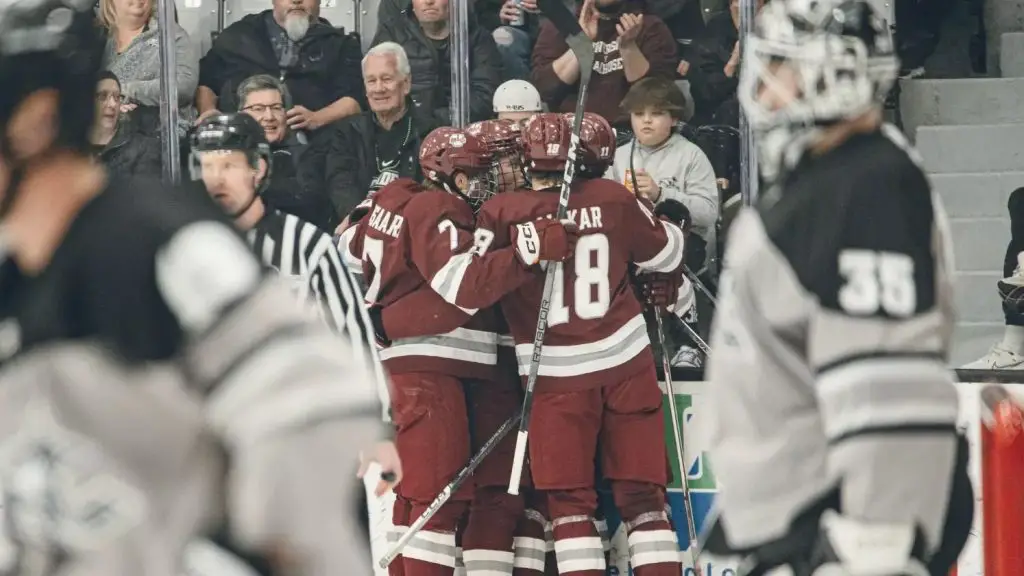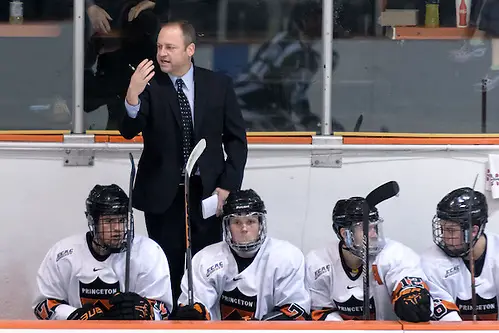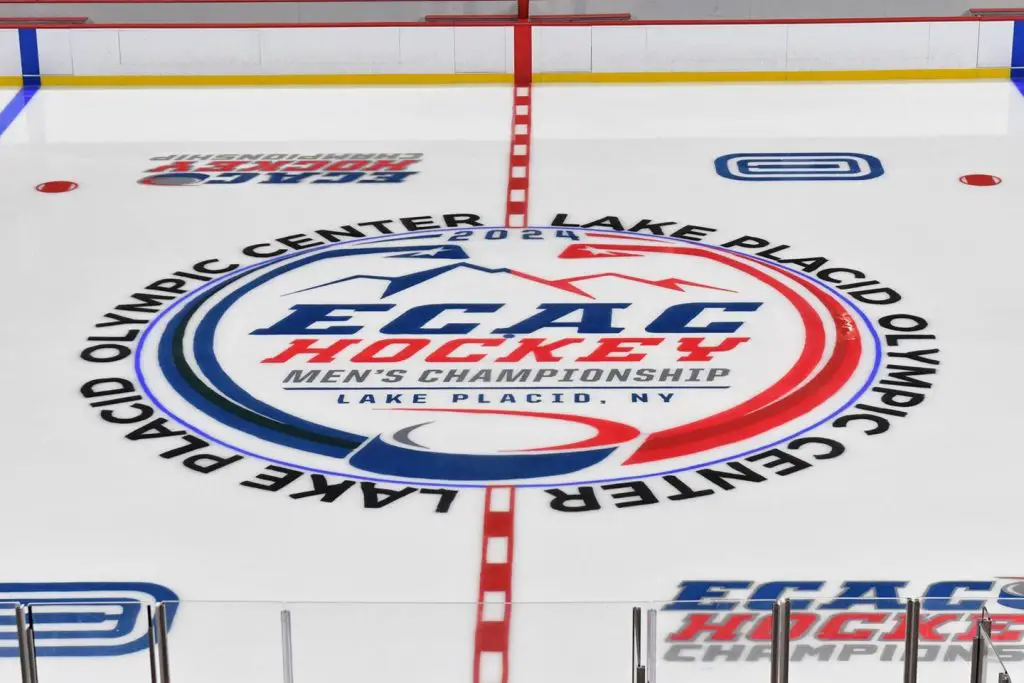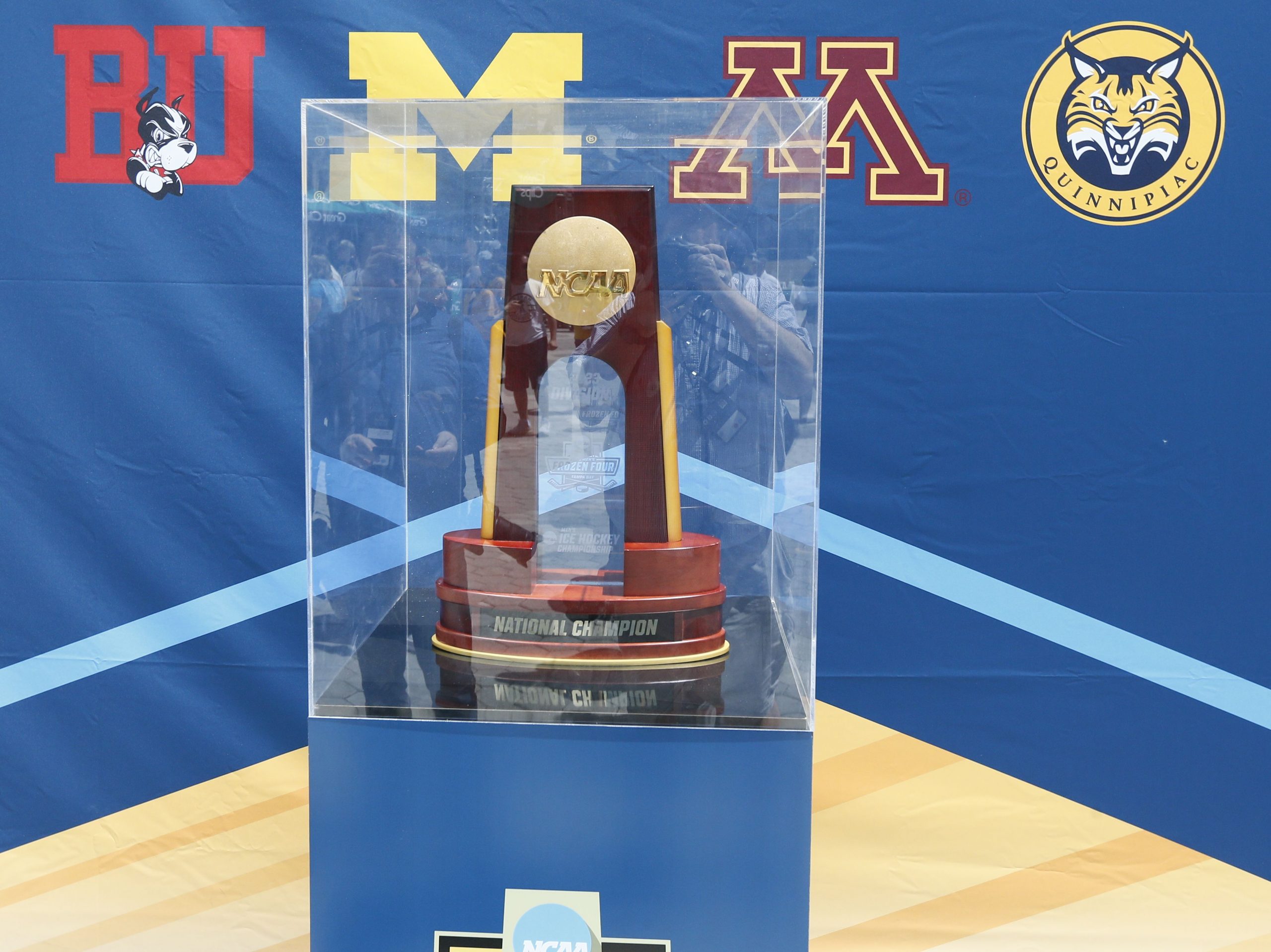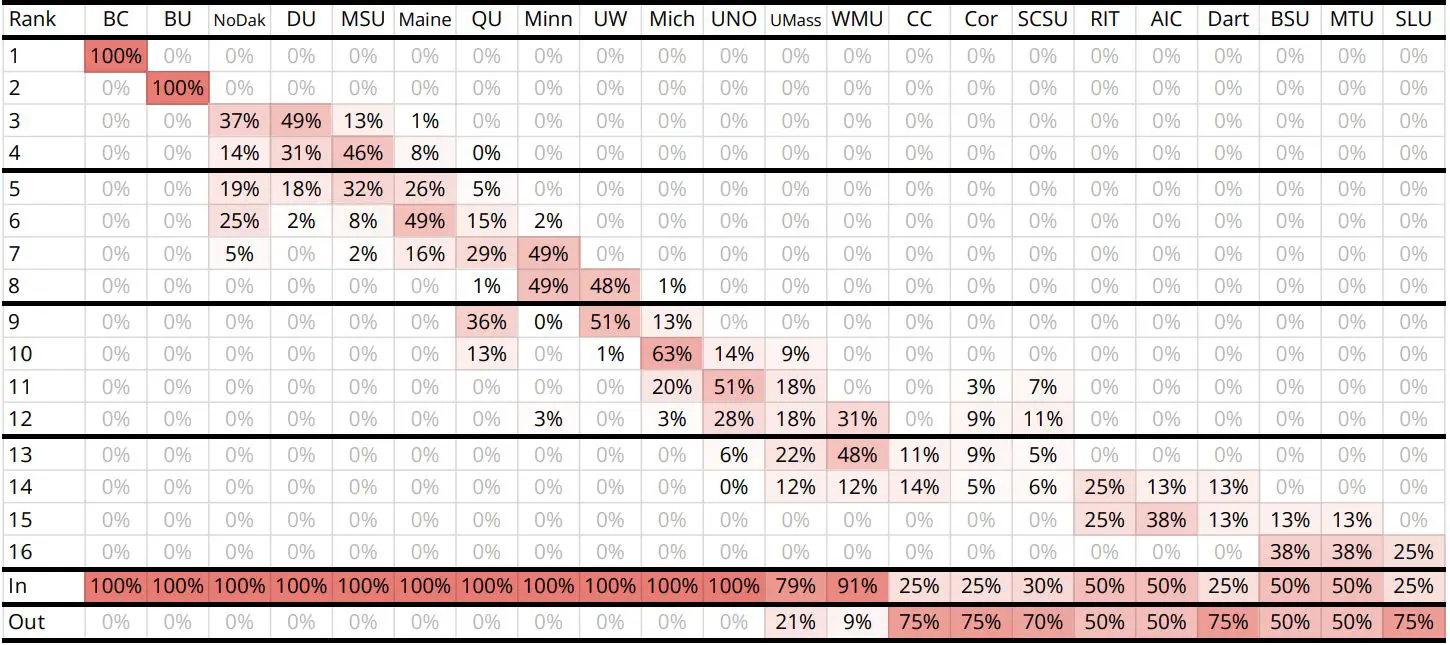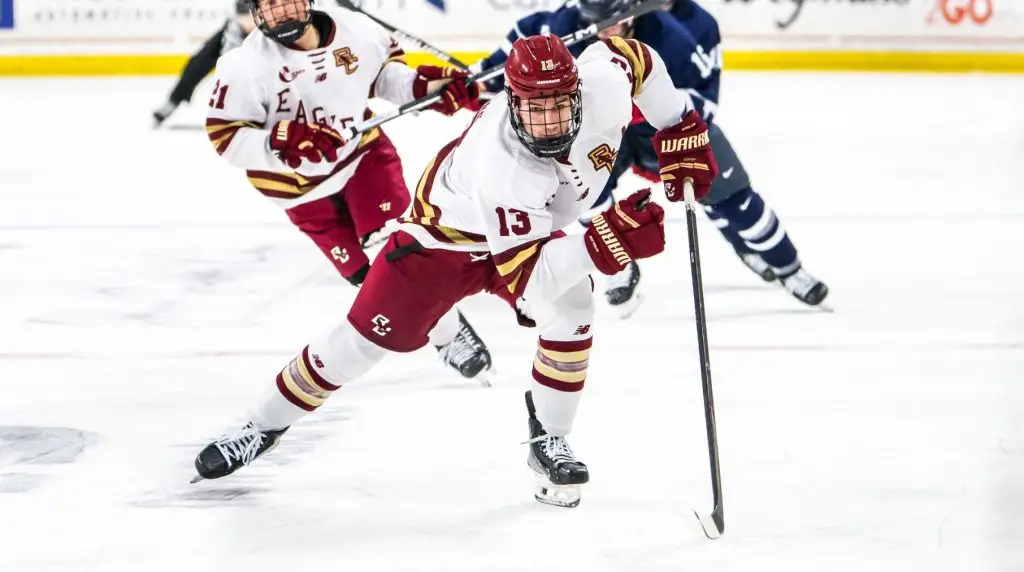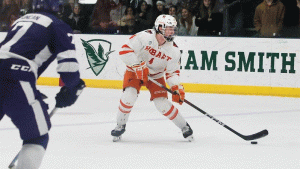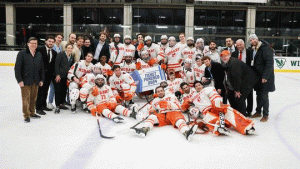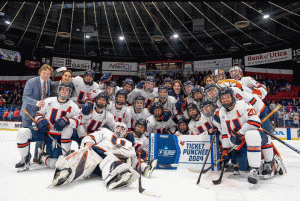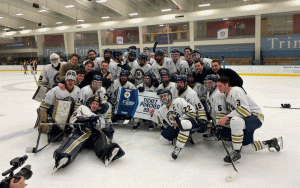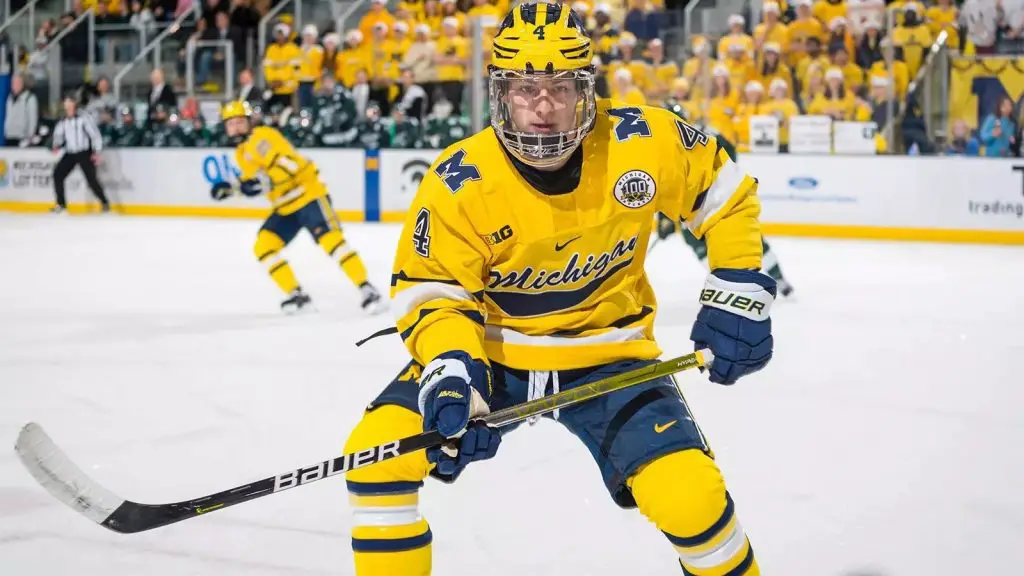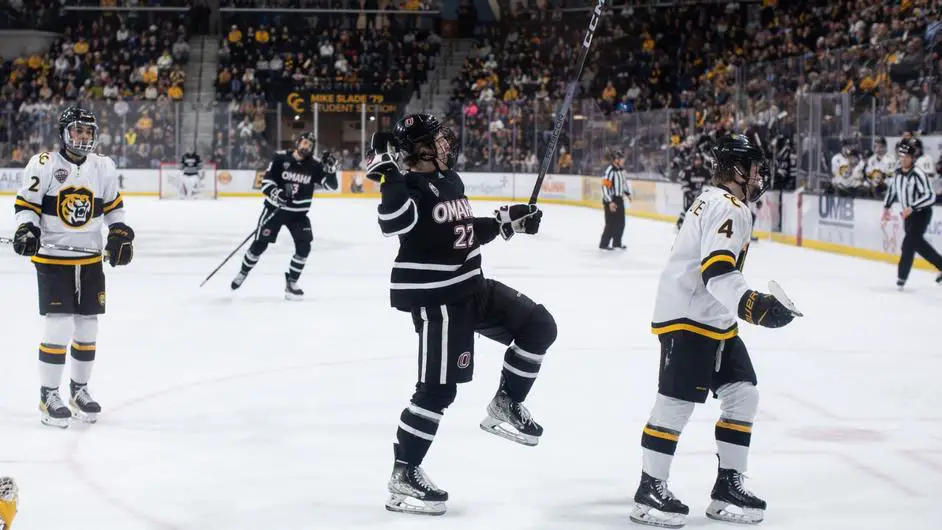This was a fun way to break down the Frozen Four teams last season, so I’m bringing it back and making it an annual post. Instead of focusing on the hypotheticals of head to head matchups of teams that haven’t played each other this season, let’s look at what each of the final four teams standing do well – and not so well – as a means to understanding who’s going to walk away from this coming weekend as a champion.
Clarkson
Why they’re going to win: First and foremost, in order to win they’ll need a massive performance from Michelle Pasiechnyk in net. Luckily for them, she does that week in and week out like it’s no big thing. They’ll win because she’s in net and they have an incredibly solid defense in front of her.
If they win the special teams battle, it’s also likely they take the whole thing. They have the best penalty kill in the country and have been absolutely bonkers with an extra attacker as time winds down. This team is truly never out of a game and they’ve forced overtime in the waning minutes and seconds so many times I lost count. They are resilient.
The Golden Knights will use their size and strength to get established in front of the net, not only blocking the opposing goalie’s sightlines, but also claiming ice for second-chance opportunities. They’re difficult to push off the puck and do a good job of pulling the focus onto the players in front of the net before dishing passes back up to the key where a well-placed shot is either going straight in or available for a deft deflection from a teammate.
They were underrated for most of the season, but just kept doing their thing and proving everyone wrong. They’ll win because they are even-keeled and have believed in themselves even if others did not.
Why they’ll lose: They’re exhausted. They played more than two full games on Saturday, which would make for a less than ideal situation in any game, but is just such a killer when you’re facing the best team in the country that loves to keep their opponents on the run. In a perfect world, OSU was going to push the pace anyway. Now that they know it’s a seeming soft spot for the Golden Knights, you better believe the Buckeyes are going to poke, poke, poke at it. And even if Clarkson gets past that, both Colgate and Wisconsin play fast. They’re walking into a weekend guaranteed to test their fitness.
Beyond that, Clarkson will lose if they’re too static. The other three teams in the Frozen Four are quick and move the puck well. If the Golden Knights are too flat and if they try to do too much from the blue line, the others are going to step in front of shots and likely take off in the other direction once they block them. Their leading scorers are blue liners and while that doesn’t mean they only stand at the top of the zone, it does mean that the defense is highly involved on the offensive end of the ice, which can leave them vulnerable. They’ve been able to play smart and recover for one another, but I guarantee every other coach at the Frozen Four has been drilling their players on blocking shots in a way that sets up the puck from them to take off on a breakaway.
I doubt it’s been a strategy, but it feels like their M.O. of scoring late in the game to even things up is really risky here. All three of the other teams are capable of putting the game away long before Clarkson gets a chance to pull the goalie and even things up. They may be too reliant on feeling like they’re never out of it and can always catch up at the end and that might become an issue here.
Colgate
Why they’re going to win: Danielle Serdachny may have taken on a different role as a playmaker instead of goal-scorer this season, but that doesn’t make her any less special. She’s a game-changing player and when it gets down to the end of a close matchup, she’s the kind of player that can take the team on her back and decide she’s not going to let them lose. I’ve heard a number of coaches say that all things considered, they’d draft her first out of this year’s class of graduates. And lucky for Colgate, she’s by far the only dynamic player on the ice. Emma Pais is ECAC Rookie of the Year and Elyssa Biederman has had a strong sophomore season. She either scored or assisted on every Colgate goal in the quarterfinal.
They are strong and deep. As the season wound down, they had a number of games where it was tight into the third quarter before the Raiders broke it open. They can be patient and wear their opponents down and then strike when the opportunities present themselves. They returned most of their roster this season and the loss to Wisconsin in the quarterfinal at home is fresh in their memory.
Colgate is in the top three in the country in each team category – defense, offense, power play and penalty kill. They are well-rounded and do so many things well. Their experienced roster hasn’t had to spend as much time learning the basics and has instead spent the season refining the details. They don’t make many mistakes.
Why they’ll lose: As good as they’ve been, the Raiders have been unable to take that last big step to national prominence. This is a program that grew tremendously over the past decade, including multiple conference titles, but this is just their second Frozen Four. They lost the 2018 National Championship game to Clarkson.
They can tend toward getting single-minded and not balancing the game well when they’re getting pressured, giving up offense to focus on defense. They have to make sure they don’t get pulled into their opponents’ game and continue to do what they do best, instead of sacrificing one part of their game. The Raiders need their forwards to play 200 feet, get back on defense and close off passing and shooting lanes while making blocks. It simply cannot be one or the other at this point of the season.
They’ll lose if they aren’t taking high probability shots, if they’re not getting in front of the puck and if they’re not quick in transition. It’s to their detriment to let any of these defenses get too settled in front of them. They have to play a full 200 foot game for a full 60 (or more) minutes. They cannot let up, they cannot have mental lapses and they cannot be casual.
Ohio State
Why they’re going to win: They were basically unstoppable in the regular season and have only improved as the year progressed. They are deep and talented and really embody the concept of relentlessness that coach Nadine Muzerall preaches. They use speed and pressure to take away time and space and force their opponents to make quick decisions or get overtaken, which often leads to mistakes and turnovers. Few teams can handle that constant pushing and prodding, much less long enough to try and play their own game. They are going to wear down the other teams, not let them get set up and try to score enough goals to put the game out of reach as quickly as possible.
With eight grad students and eight seniors, this roster was designed with strategic use of the transfer portal and built for this exact moment. The Buckeyes are hungry, they’re pissed off and they still play like an underdog with a chip on their shoulder, even after winning a title two years ago and dominating the WCHA this season.
While there are obviously some elite players on this team, the Buckeyes play like a team without a star. Any line, any combination of players can make life difficult for whomever they are playing and that makes it difficult to prepare for them and create matchups.
Why they’ll lose: The flip side of their propensity for pressure and pushing on their opponent is that when things go sideways, they haven’t actually had a lot of experience recovering. They made mental mistakes in the WCHA title game and struggled to get back on track before the game was out of reach. They have to support Raygan Kirk and not give their opponents chances in close. Without strong defensive support, she was not at her best in that tournament final loss, giving up six goals on just 22 shots. It was by no means all her fault, but that stands out as a chink in the armor of a team that doesn’t have many weaknesses to attack.
The Buckeyes spent a full season exerting their will on everyone they played, but I don’t foresee that being so easy this weekend. Often games between the top teams turn chaotic and ugly as they counter each other at every opportunity. This seems like a team that’s pretty attached to their systems and that’s been ok because so few teams have been able to force them out of them. But OSU will lose if they aren’t able to recognize when it’s time to adjust or aren’t able to make the necessary changes.
They can’t let the moment be too big or let their emotions get the better of them. The talk has been about winning the title and getting revenge, but they’ve got to win their semifinal first. Getting to this point has been their sole focus for a full year and it has driven them to be the best, but at this point, they have to be playing for themselves and for each other and not against anyone else.
Wisconsin
Why they’re going to win: The defending national champions won in improbable fashion last season as they went into the NCAA Tournament unranked. The Badgers are back with a more talented roster that is hitting its stride at the perfect time of the season. They have two big wins over Ohio State in the past few weeks that give them the confidence to know that team is beatable. They’re also deep, with six players with 30 or more points and two Patty Kazmaier top three Finalists in Kirsten Simms and Casey O’Brien who each have more than 70 points.
It took a little time, but as the game wore on in the NCAA Quarterfinal, Wisconsin adjusted to St. Lawrence’s pressure and attempts to slow them down in the quarterfinal. They were patient and didn’t get frustrated and used their speed and the boards to their advantage. They’ll need to be quicker to adapt against any of these Frozen Four teams, but that they didn’t get visibly frustrated, didn’t take stupid penalties (as was their wont over the final few weeks) and were patient enough to regroup and try something new that did eventually work bodes well for them.
Seven women on this roster have been invited to evaluation camp for Team USA in advance of the Women’s World Championship. They are individually very good players, but finally started cashing in on the promise of their combined talent in the past few weeks. When they are on, it’s beautiful to watch and nearly impossible to beat. They’ll repeat as champions if they’re able to control the puck, move quickly through neutral and get good looks at the net.
If they play a game like they did to defeat Ohio State in the WCHA title game, they’ll be difficult to dethrone.
Why they’ll lose: Wisconsin loses if they stop playing their game. They can deal with chaos and ugly hockey, but when they start to get in their own heads, things go awry. They need to adapt and not be stuck trying the same thing over and over expecting different results, but they also need to remember what got them to this point. This team is at their best when they’re loose and comfortable. That doesn’t mean undisciplined, just that they’re not overthinking things or trying to do too much.
The Badgers can get in their own way and that will give teams as talented these the window they need to exploit them. They have a tendency to have high shot attempt numbers that correlate to a low number of shots on goal. Ava McNaughton has been very good in the postseason, but they’re hanging a lot of pressure on the rookie. They need to limit penalties and not get pulled into skirmishes. If they don’t win the special teams, their season is going to end pretty quickly.
Against SLU last week, they scored on their first shot and then didn’t light the lamp again until more than 30 shots on goal later. Their fast break style can mean that there isn’t always a trailing skater to put back rebounds or loose pucks.
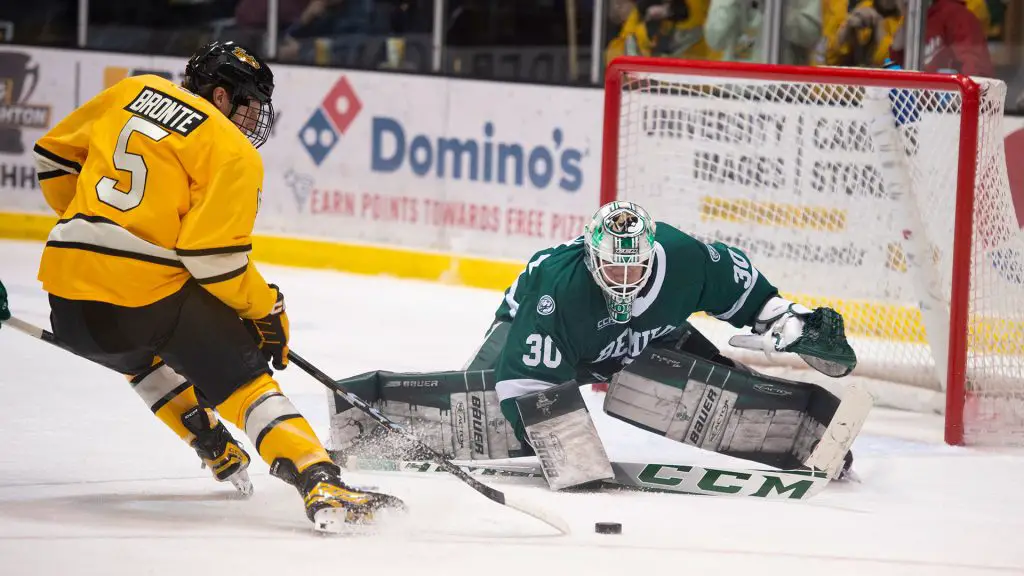
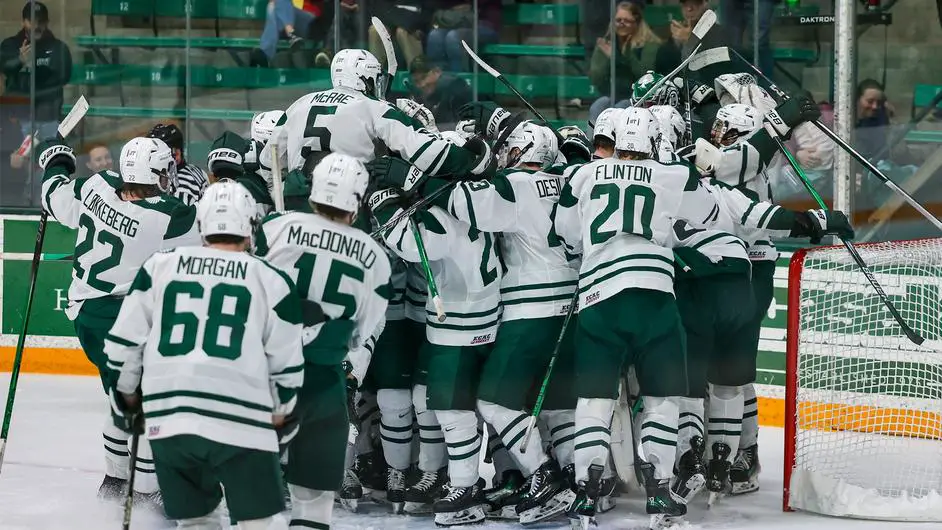
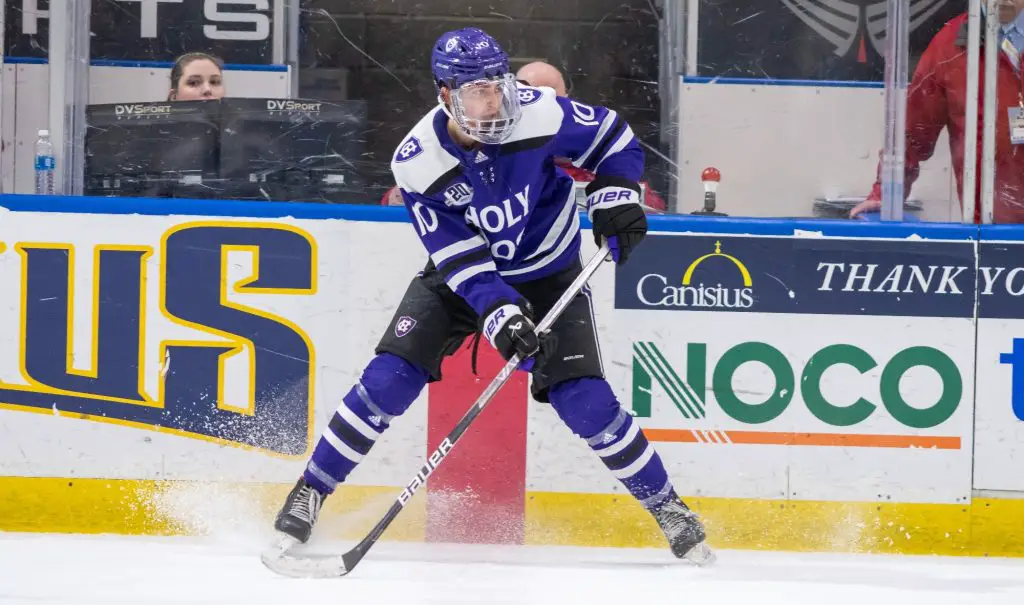
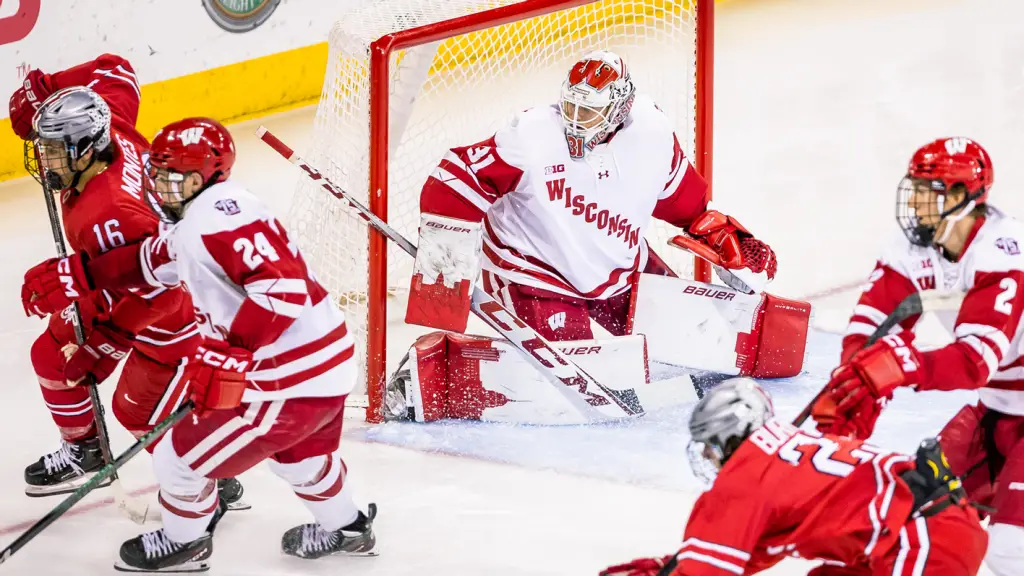
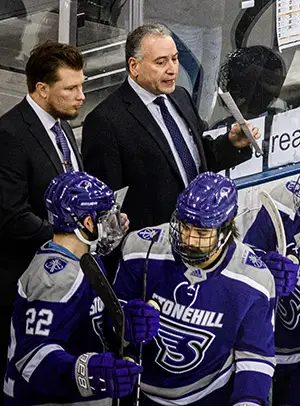
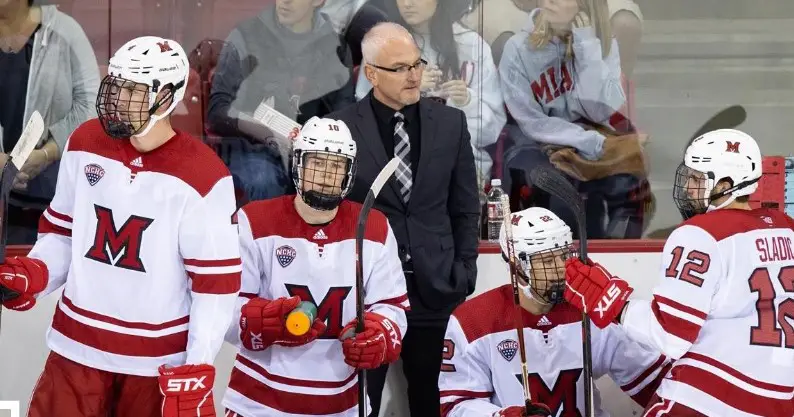

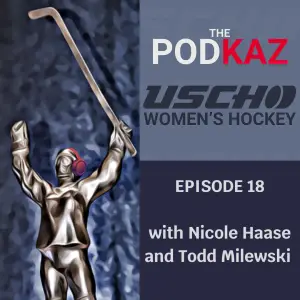 USCHO’s Nicole Haase (@NicoleHaase) and Todd Milewski (@ToddMilewski) detail the semifinal matchups for the 2024 NCAA Frozen Four, Ohio State vs. Clarkson and Wisconsin vs. Colgate, after looking back at some of the highlights of an entertaining regional weekend.
USCHO’s Nicole Haase (@NicoleHaase) and Todd Milewski (@ToddMilewski) detail the semifinal matchups for the 2024 NCAA Frozen Four, Ohio State vs. Clarkson and Wisconsin vs. Colgate, after looking back at some of the highlights of an entertaining regional weekend.